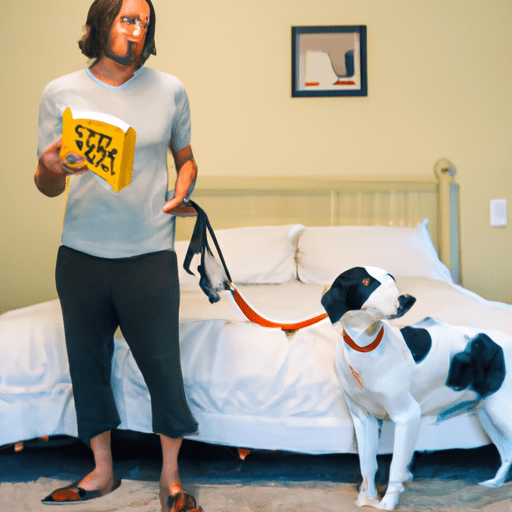As a caregiver, you may have encountered the puzzling and frustrating behavior of your dog peeing on a bed. Understanding the reasons behind this can help you deal with the issue effectively.
A Dog’s Way of Marking Territory
Dogs are instinctually territorial animals. They often use their urine to mark their territory, claiming it as their own. Your bed, with your scent strongly present, might be a prime target for this type of behavior.
- Scent-marking: Dogs might pee on your bed because it is the place where your scent is strongest. They mix their scent with yours to assert their presence.
- Dominance: This is particularly common in unneutered male dogs. They mark their territory to show dominance over other animals in the household.
Health Issues
Sometimes, the reason your dog is peeing on your bed could be due to health issues. Here are some common health-related reasons:
- Urinary Tract Infection (UTI): UTIs can make it difficult for your dog to control their bladder.
- Bladder Stones: These can cause discomfort and lead to frequent urination.
- Kidney Disease: Dogs with kidney disease often have trouble holding their urine.
| Possible Health Issue | Symptoms |
|---|---|
| Urinary Tract Infection (UTI) | Increased frequency of urination, difficulty urinating, blood in urine |
| Bladder Stones | Frequent urination, blood in urine, discomfort while urinating |
| Kidney Disease | Increased thirst, increased urination, weight loss, vomiting |
Anxiety and Fear
Just like humans, dogs can experience anxiety and fear. These emotions can cause them to lose control of their bladder.
- Separation Anxiety: Dogs who are overly attached to their owners might pee on the owner’s bed when left alone.
- Fear: Loud noises, new environments, or unfamiliar people can trigger fear in dogs, resulting in them peeing on the bed.
Lack of Proper Training
A dog that has not been properly house-trained may not understand that it is not acceptable to pee on the bed.
- Inconsistent Training: Dogs thrive on consistency. If house-training is not consistent, they may become confused about where they should and shouldn’t pee.
- Lack of Positive Reinforcement: Dogs learn best through positive reinforcement. If they are not rewarded for peeing in the right place, they may not see the point in doing so.
Aging and Incontinence
As dogs age, they can develop incontinence. This can cause them to urinate involuntarily, often when they are resting or sleeping.
- Old Age: As dogs get older, they may lose control of their bladder.
- Hormonal Imbalance: This can also lead to incontinence, especially in spayed female dogs.
FAQ
Q: Why is my dog suddenly peeing on the bed?
A: Sudden changes in behavior could be a sign of a health issue. It’s best to consult with your vet.
Q: My dog is peeing on my bed, but not other furniture. Why is this?
A: Your bed carries your scent the most, so your dog may be marking it to mix their scent with yours.
Q: How can I stop my dog from peeing on the bed?
A: Consistent house-training, providing a comfortable and accessible outdoor spot for them to pee, and consulting with a vet can help solve this issue.
Q: Could my dog be peeing on the bed as an act of revenge?
A: Dogs don’t act out of spite or revenge. If your dog is peeing on the bed, it’s more likely due to health issues, anxiety, or lack of proper training.
Remember, patience and understanding are key when addressing this issue. It’s always best to consult with a vet if you’re unsure.



